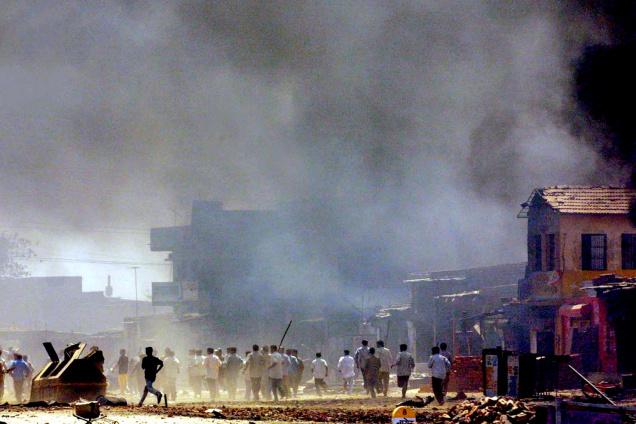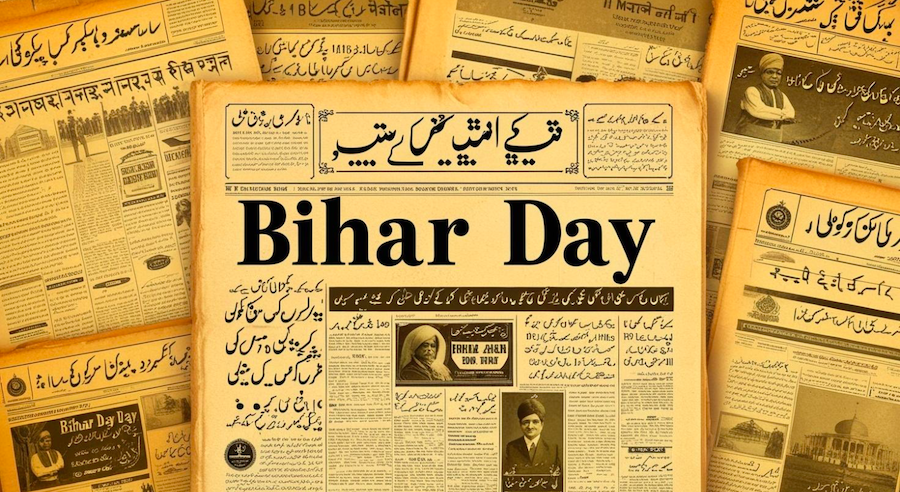U.S. itself is guilty of “horrific human rights violations” says Gujarat Chief Minister; Consul-General Owen stands his ground on “human rights and religious freedom” in a “chilly” 2006 meeting in Gandhinagar
When a US diplomat raised the horrific Gujarat communal violence of 2002 with Chief Minister Narendra Modi in November 2006, he got more than what he had bargained for: a lecture on the “horrific human rights violations” by the United States.
Michael S. Owen, Consul General in Mumbai, was the diplomat at the receiving end of Mr. Modi’s tirade during a November 16, 2006 meeting in Gandhinagar. This was the first such meeting since the March 2005 revocation of Mr. Modi’s U.S. visa on account of his role in the 2002 communal violence in Gujarat — in which (according to an official ministerial statement made in Parliament in 2005) 790 Muslims and 254 Hindus were killed, and 223 more people were reported as missing. The genocidal attack on Muslims by mobs of Hindu extremists and fanatics followed the burning of a coach of the Sabarmati Express by a local mob of Muslim extremists and fanatics at Godhra on February 27, 2002. The coach was carrying kar sevaks returning from Ayodhya. The police failed to quell the post-Godhra anti-Muslim pogrom that went on for several weeks, which lent credence to reports of state complicity in the violence. Mr. Modi was questioned on March 27, 2010 by the Supreme Court-appointed Special Investigation Team headed by R.K. Raghavan, former Director of the Central Bureau of Investigation, in connection with the Gujarat riots.

In a revealing Mumbai Consulate cable, which was sent on November 27, 2006 to the State Department and copied to an interesting selection of U.S. embassies, consulates, and other destinations (87085: confidential), Mr. Owen recounted what followed after “a relaxed” Chief Minister had given him “a glowing overview of his Government’s achievements in building infrastructure and promoting economic growth in Gujarat” and he had responded appropriately. The Consul General then moved on to a taboo subject, an issue that Mr. Modi evidently considered to be none of his business: “while we are very pleased with our business and people to people relations with Gujarat, we remain concerned about communal relations within the state. In particular, we remain concerned that nobody has yet been held accountable for the horrific communal violence of 2002, and are further concerned that an atmosphere of impunity could lead to a further deterioration of communal relations. What is the Government of Gujarat’s view on this, he asked.”
‘Modi visibly annoyed’
“A visibly annoyed Modi,” the Consul General reported to the State Department, “responded at considerable length.” The Chief Minister, he said, made three essential points: “the events of 2002 were an internal Gujarati matter and the U.S. had no right to interfere; the U.S. is itself guilty of horrific human rights violations (he specified Abu Ghraib, Guantanamo, and attacks on Sikhs in the U.S. after September 11) and thus has no moral basis to speak on such matters, and; Muslims are demonstrably better off in Gujarat than in any other state in India, so what is everybody griping about?”
Mr. Owen correctly pointed out that it was not only the U.S. that was concerned with this issue. “The Indian National Human Rights Commission report itself cited ‘a comprehensive failure on the part of the state Government’ to prevent the violence of 2002. We are reflecting a broad cross section of opinion that no one has been held accountable for the violence and that consequently a climate of impunity is developing. Secondly, Abu Ghraib is precisely the point: Americans can also commit human rights violations but when they do we have a clear procedure to investigate, prosecute, and punish those guilty of wrongdoing. This is what we and others would like to see in Gujarat.”
To this, “Modi grumbled that the Indian National Human Rights Commission was biased and its reports wildly inaccurate. More broadly, he claimed, the U.S. relied far too much on ‘a few fringe NGOs’ that don’t know the real picture and have an axe to grind. In any event, if officials are guilty of wrongdoing, then it is up to the courts to prosecute and punish them, and the Chief Minister could not interfere with the judicial process.”
The Consul General reacted that it had been well over four years since the violence occurred and nobody had been sanctioned; this gave little confidence that anyone would ultimately be held accountable. “Modi noted (accurately, alas) that the culprits in the 1993 Mumbai bombings are only now being sentenced, so we should not have ‘unrealistic expectations’.”
‘Evasive, backtracked’
When the diplomat asked if there was in fact an active investigation of the Gujarat violence still under way, “Modi was evasive and backtracked to his claim that Muslims in Gujarat are better off than in any other state in India. He noted that the BJP had won big victories in recent local bodies elections in Muslim districts, and that a recent study had found literacy among Muslims was higher in Gujarat than in any other state. The 2002 violence had involved a ‘few miscreants’ and had been blown out of proportion by ‘fringe elements,’ he said. Communal relations in Gujarat are now excellent, he claimed.”
Mr. Owen responded that the U.S. acknowledged the many positive accomplishments of the Modi government, including economic growth and education: “These are to be applauded, but do not diminish in any way the importance of holding accountable those persons who are guilty of inciting or carrying out communal violence…failure to do so will create an atmosphere of impunity in which radical elements would feel emboldened in the future. He concluded by underlining that the U.S. Government considers human rights and religious freedom to be extremely important, and we will continue to monitor developments and engage his Government in these areas.” Mr. Modi, switching to an apparently more conciliatory note, allowed that he understood human rights and religious freedom to be important to the U.S. because “you people keep raising these issues all the time.” The meeting concluded with the Chief Minister saying” with a touch of irony that he hoped Consul General would return to Gujarat on a regular basis. ‘All Americans are always welcome in my state,’ he said.”
Consul General Owen’s concluding comment in the cable is: “Modi is clearly not going to apologize or back down on the violence of 2002, but we think it is vital for him to hear that we are not going to let the passage of time erase the memory of these events. Despite the chilly atmosphere of the meeting, Modi did take on board the message that human rights and religious freedom are important issues that we will continue to monitor carefully. We believe Sinhji’s comments on Modi are indeed accurate: ironically the man most hold accountable for the communal violence of 2002 may now be the most ardent defender of communal harmony, at least on the surface. It remains to be seen to what extent Gujarat’s economic boom will lead to genuinely improved communal relations over time.”
The reference is to an “interesting point” that former Congress party MP and former Minister of Environment Yuraj Digvijay Sinhji made to Mr. Owen: “The fact that Modi clearly has aspirations for national leadership makes him, ironically, one of the greatest protectors of communal harmony at this stage. Modi knows that another outbreak like 2002 would doom his chances, so he is going to be particularly zealous to ensure there are no further problems on his watch.”
But that was not all that Mr. Sinhji said in his lengthy meeting with the Consul General. “Asked whether Modi could become a national leader,” the Mumbai consulate-general cable relays to the State Department,” Sinhji (himself the scion of the princely Wankaner family and a Cambridge grad) sniffed that Modi ‘lacks the polish and refinement’ to become a national leader. But Sinhji raised another reason why Modi could face challenges in becoming a national leader: Modi’s reputation for being completely incorruptible is accurate, and if he were to become a national leader he would crack down on corruption throughout the BJP. There are too many BJP rank and file waiting to line their pockets once the BJP returns to power, Sinhji said, and the prospect of Modi cracking the whip on corruption is entirely unappealing to this crowd. Modi would have a hard time clearing this hurdle, according to Sinhji.”
(This article is a part of the series “The India Cables” based on the US diplomatic cables accessed by The Hindu via Wikileaks.)
Curtsey: The Hindu









